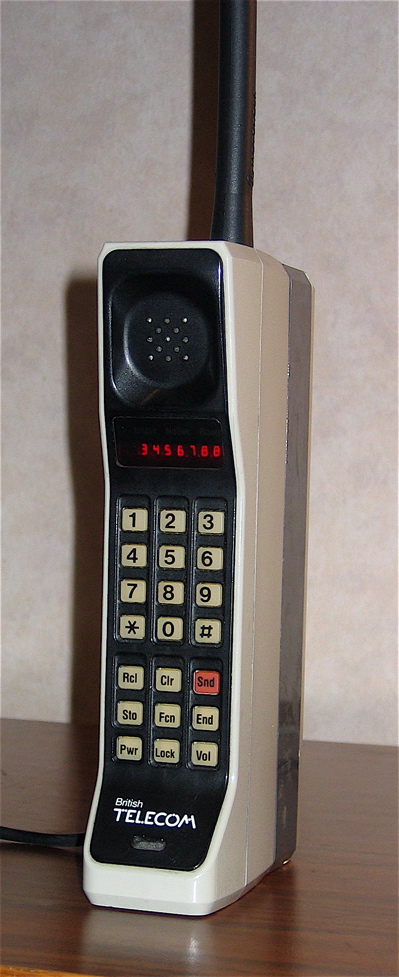Mobile phones were invented as early as the 1940s when engineers working at AT&T developed cells for mobile phone base stations.
The very first mobile phones were not really mobile phones at all. They were two-way radios that allowed people like taxi drivers and the emergency services to communicate.
Instead of relying on base stations with separate cells (and the signal being passed from one cell to another), the first mobile phone networks involved one very powerful base station covering a much wider area.
Motorola, on 3 April 1973 were first company to mass produce the the first Portable mobile phone.
These early mobile phones are often referred to as Zero Generation (0 G)mobile phones.
In 1983, Motorola released a $4,000 phone.
The Motorola DynaTAC 8000X. In 1984, it became the first commercially available handheld cellular mobile phone
But it wasn’t until 1989 that phones began to shrink in size with the Motorola MicroTac, a flip phone small enough to fit inside a shirt pocket.
Over the past half-century, the cell phone has become much smaller and easier to carry around, and it’s evolved to connect us in ways that Cooper and Engel perhaps never imagined.
At the turn of the century, Nokia burst onto the scene taking the cellphone market by storm. The Nokia 6000 series introduced phones with durable, rectangular shape that fit perfectly into a palm, purse, or pocket. It was the first cell phone made more affordable for the masses and it allowed them to browse the web.
Over the past half-century, the cell phone has become much smaller and easier to carry around, and it’s evolved to connect us in ways that Cooper and Engel perhaps never imagined.
At the turn of the century, Nokia burst onto the scene taking the cellphone market by storm. The Nokia 6000 series introduced phones with durable, rectangular shape that fit perfectly into a palm, purse, or pocket. It was the first cell phone made more affordable for the masses and it allowed them to browse the web.
Coming of Iphone in 2007
But the true smartphone revolution didn’t start until Macworld 2007, when Steve Jobs revealed the first iPhone,
It was the first touch screen Phone.it chaged cellphones transitioning from their role as a means for communication to a tool relied on daily for all sorts of tasks. According to History Cooperative, with the first iPhone, Apple introduced touchscreen functions, internet access through Safari, a virtual keyboard, and full rich-text email access.
The Future Technology has advanced so far, it is hard to imagine what might be coming up next..

0 Comments